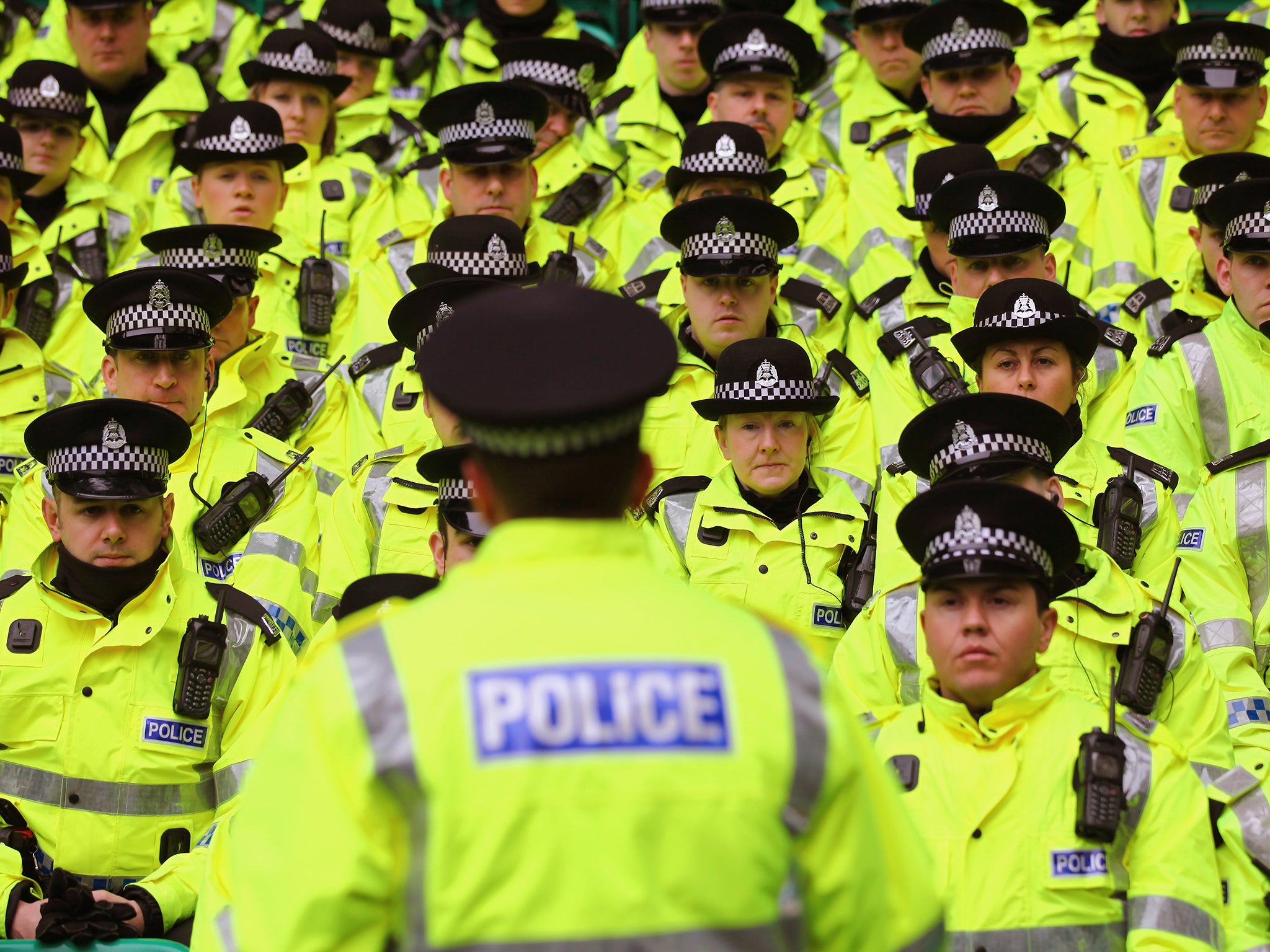Metropolitan Police asks retired officers to return to work for their 'skills and experience'
Critics say move ‘stinks of desperation’ as government announces bonus scheme for officers

Retired officers are being asked to return to the Metropolitan Police as it works to maintain experienced staff amid a “tidal wave” of recent graduates and apprentices.
In a move reminiscent of the BBC drama series New Tricks, Britain’s largest force is inviting around 2,500 officers who are due to leave the service or have retired in the past two years to apply for the lucrative scheme, even if they have already taken their pension lump sum.
Met Commissioner Cressida Dick said it would be open to police ranks from constables to inspectors, but more senior officers will be considered “if there is a critical skills shortage”.
“I hope that it will be a very attractive offer to keep people very close to a service they love and may have been reluctant to leave,” she told delegates at the Police Superintendents’ Association conference in Leicester.
The one-year “return scheme” will allow successful applicants to re-enter the force at their former rank and “with the same level of financial reward as when they left”.
A spokesperson for the Metropolitan Police said it aimed to “enable the retention of officers with valuable skills and experience while we recruit nearly 2,000 new officers to grow officer numbers to 30,750”.
“Those rehired under the MPS return scheme will be required to leave the service for a period of one month and will be able to take their lump sum pension entitlement prior to their return,” he added. “Their monthly pension will be abated to ensure that the officer is not earning more than when they left the service.”
Health and discipline records will be among the factors considered, and accepted officers will be eligible for promotion.

More than 20,000 police officers have been lost since 2010 amid government budget cuts that leaders say have made the vocation less attractive to new recruits.
Chief Superintendent Gavin Thomas, president of the Police Superintendents’ Association, supported the retired officers move.
He told The Independent it could help “to retain people with the skills, the expertise and the knowledge from being in the service a bit longer”, adding: “The reality is the police service is competing in a very competitive market, so what’s the alternative? Do you want those people with special skill sets to go and work in a bank or a private sector, or do you want to retain them in the police service and still deliver a great public service?”
But critics raised fears the scheme would cause division among officers at a time when, as a National Audit Office found this week, financial strain is driving falling arrest rates and poor victim satisfaction.
John Apter, chair of the Police Federation of England and Wales, said the return of retired officers could provide much needed experience among a “tidal wave of very young and inexperienced officers” arriving from degrees, apprenticeships and direct entry schemes.
“But it does stink of desperation,” he added. “On one hand we had been putting them under incredible pressure and causing many of them to break, but then when they leave the force we are asking them to come back.”
Ms Dick told the government its decision to refuse a 3 per cent pay rise for officers, which was recommended by an independent review body, was having an impact on morale, recruitment and retention.
“I don’t want the government to wait for the police to be struggling like the prison service with chronic understaffing,” she said, adding that the 2 per cent increase felt like a “punch on the nose” as officers deal with rising crime and the terror threat.
The home secretary announced a new law to give officers in “challenging roles” bonuses of up to £4,000 a year – but no extra funds for the rewards.
“I will continue to fight on the police’s behalf to ensure you have the resources you need to do your jobs effectively,” Sajid Javid said, outlining plans for a new law allowing the bonuses to be given to officers who take on “hard-to-fill roles” and for superintendents in “especially challenging” posts.
When asked about how forces could afford the payment at a time when they are under immense financial strain, the home secretary replied: “Chief constables can afford to do this.”
The speech was warmly received by conference delegates including his brother Bas Javid, who is a chief superintendent in West Midlands Police.
Some officers feel that policing is being used as a political tool by Mr Javid to distance himself from his predecessor Amber Rudd and the legacy of Theresa May’s time as home secretary, when she infamously told officers they were “crying wolf” about the impact of cuts.
But many have welcomed a drastically changed approach to police at the Home Office, which is carrying out a frontline review and taking submissions from officers across England and Wales.
Mr Apter warned that the bonus scheme, which would come out of existing budgets, would put “chief constables in an incredibly difficult position”.
“The home secretary is going to be generous with his words but he needs to be generous with his cash,” he said. “The pressure is felt in all ranks, including firearms officers and detectives.”
The National Police Chiefs’ Council said leaders were being forced to “prioritise” spending, after several forces told The Independent they were formally changing the way they respond to some crimes.
Chief Constable Dave Thompson said: “Forces are under increasing strain as they deal with rising crime, demand that is more complex and an unprecedented terror threat with fewer officers.”
Join our commenting forum
Join thought-provoking conversations, follow other Independent readers and see their replies
Comments
Bookmark popover
Removed from bookmarks